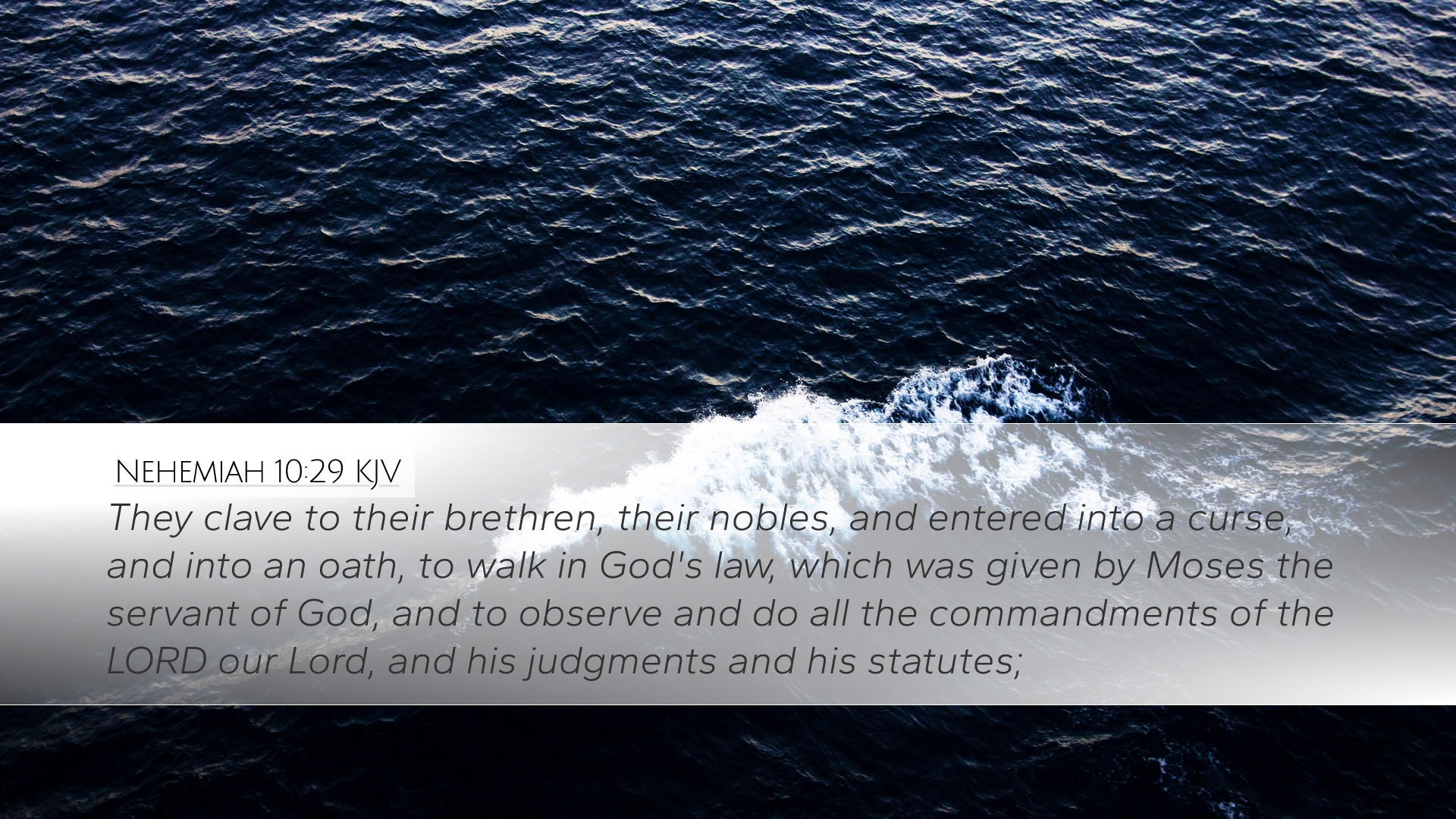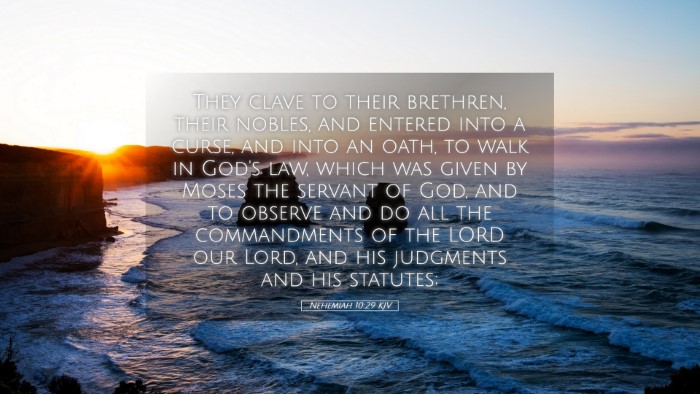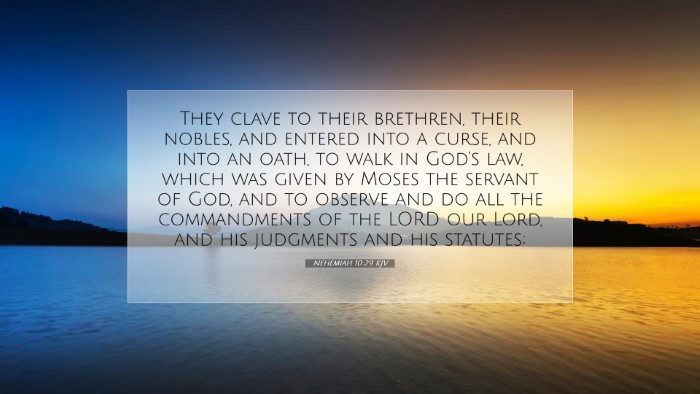Commentary on Nehemiah 10:29
Verse: "They clave to their brethren, their nobles, and entered into a curse, and into an oath, to walk in God’s law, which was given by Moses the servant of God, and to observe and do all the commandments of the Lord our Lord, and his judgments and his statutes."
Overview
Nehemiah 10:29 captures a pivotal moment in the history of Israel's restoration, where the returned exiles commit themselves to a covenant to uphold God's Law. This verse encapsulates the serious resolve of the people to live according to the statutes delivered by Moses, emphasizing community, obedience, and accountability.
Historical Context
The backdrop of this covenant is crucial. The Israelites had returned from Babylonian exile and were re-establishing their identity as God's chosen people. The faithfulness to the Law was a sign of their commitment to God. Both social and spiritual renewal were at stake, and their agreement to the covenant marked a necessary step in the reinstitution of their society around the principles articulated in the Law.
Thematic Insights
- Community and Unity: The phrase "they clave to their brethren, their nobles" encapsulates the importance of community. This act of unity indicates that communal identity was significant in their practice of faith. The binding together of leaders and common people in this commitment illustrates that all members of the covenant community were called to mutual support and shared accountability.
- Commitment to God's Law: The commitment to "walk in God’s law" underscores the necessity of adherence to the commandments for a faithful life. The Law was viewed not merely as a set of rules but as a way to maintain relationship with God and each other, a guide for righteous living.
- Covenantal Language: The use of "curse" and "oath" in this context signifies the serious nature of their commitment. By invoking a curse, they acknowledge the dire consequences of failing to uphold their promise, illustrating the gravity of faithfulness to God’s commands.
- Historical References: The reference to Moses as "the servant of God" very much highlights the tradition that Moses represents in Israel's collective memory. His leadership and the Law given at Sinai were foundational for the Israelites' identity, and invoking his name reinforces their commitment to these traditions.
Exegesis
This verse is rich in exegesis that has been examined by well-known biblical commentators. Matthew Henry’s commentary emphasizes the seriousness of their commitment manifesting the depth of their remorse from past actions that led them into exile. He notes that such resolutions should not be taken lightly but should reflect a genuine heart transformation.
Albert Barnes comments on the binding nature of their promise. He points out that in the ancient context, public declarations like these were taken as serious and binding. The use of the curses, as part of their agreement, aligns with ancient treaty practices, stressing the import of their resolve to follow God's precepts faithfully.
Adam Clarke provides further historical insights, noting the impact of the Babylonian Exile on the collective psyche of the Israelites. Their eagerness to adhere to the Law post-exile demonstrated a need for restoring their covenantal relationship with God and maintaining spiritual integrity. Clarke also touches on the significance of the acknowledgment of their ancestors' laws, showing a deep respect for the covenant history that shaped their identity.
Theological Implications
The commitment declared in Nehemiah 10:29 yields multiple theological implications. Firstly, it highlights the interplay between law and grace. While they were committing to the law, it also pointed toward a deeper realization that adherence alone could not secure their relationship with God; their hearts needed transformation. This lays groundwork for understanding future New Testament themes concerning the fulfillment of the law in Christ.
Furthermore, it offers a model for modern believers regarding the importance of communal accountability and the seriousness of covenant commitments. It serves as a challenge of living out one's faith in the light of communal and personal integrity, prompting contemporary congregations to reflect on their commitments to God and one another.
Conclusion
Nehemiah 10:29 stands as a timeless reminder of the seriousness of covenant relationships with God. In the context of community and shared faith, this verse implores present-day believers to examine their own commitments to divine law, governance by the Spirit, and accountability to one another. It encapsulates the essence of collective faithfulness—anchored in the Law—and serves as an enduring text for theological reflection and practical application.


